PriMed 2014 : registrations are open until 15th April…
The Board of Directors of CMCA , meeting Oct. 16 2013, announced the final dates for the 18th edition of PriMed. Read more “PriMed 2014 : registrations are open until 15th April 2014”
The Board of Directors of CMCA , meeting Oct. 16 2013, announced the final dates for the 18th edition of PriMed. Read more “PriMed 2014 : registrations are open until 15th April 2014”
The pictures of PriMed 2013.
Professionals, directors, public, VIP, organization, the MuCEM, the Villa Mediterranean: images of a great success. Read more “Pictures of PriMed 2013”
[iframe “http://primed.tv/wp-content/uploads/2013/03/animation_films-primed-english-version.swf” align=”right” 610 500]
The map of the films gives you the opportunity to discover the geographic area affected by the subject of the movies < ! - More -> in competition for the final phase.
Click on the title of the movie and go to the page to see the specific summary, extract video and biography of the director.
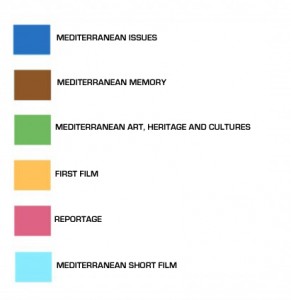
[easyembed field = “mokht”]Watch here the trailer of the 17th edition
[easyembed field = “bandeannonce2013”]
Direction : Franco F. Revelli Read more “The PriMed in video”
The CMCA, Mediterranean Center for Audiovisual Communication, presented the 17th edition of PriMed at the Cannes Festival ! Read more “PriMed presented at Festival of Cannes”
____
50 years after the Evian Accords and Algeria’s independence, the time seems ripe to tell the Algerian War as it really was, without taboos or silences. Using archival images, mostly never seen before and from a variety of sources (the French army, French television but also from British, Algerian and Eastern European television as well as some amateur footage), “Guerre en Algérie, la déchirure” attempts to show the conflict from every side, taking the diversity of viewpoints into account to try to understand what really happened.
Gabriel LE BOMIN is an author and film-director. He has several films to his credit, the most recent documentaries being: “Les Francs-Maçons et le pouvoir (2009, 52 minutes), “Histoire de l’Armée française” (2006, 2 x 52 minutes), “La Ligne Maginot” (2001, 3 x 15 minutes), “La 2ème Guerre Mondiale et la France Libre” (2000), “Le Colosse d’Alexandrie” (1999, 13 minutes) and “Rwanda, l’humanité nous appelle” (1995, 26 minutes).
Click on the title of category to access the video extracts. Read more “PriMed 2013 SELECTION”
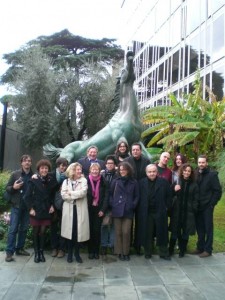
The PriMed pre-selection jury met in Rome between December 17th and the 21st last year. Thanks to the work and help of our Secretary General, Maria DU BESSE, they were able to use the facilities of RAI TV.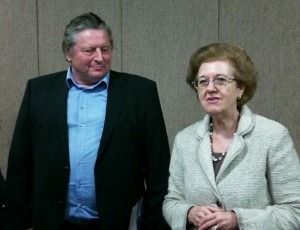
For this 17th PriMed, 440 films were received from 36 countries, a record for the festival.
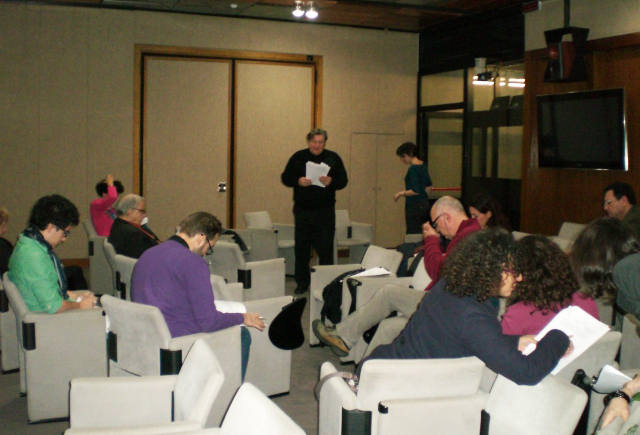
Mohamed Nadir AZIZA (Osservatorio del Mediterraneo), Elisabeth CESTOR (MuCEM), Zouhair LOUASSINI (RAI News), Fabio MANCINI (RAI3 /
Doc3), Lorenzo HENDEL (RAI3/Doc3), Leila MATTAR (translator), Mireille MAURICE (INA Méditerranée), Claire DECHAUX (INA Méditerranée), Carolina POPOLANI (producer/director), Sami SADAK (Babel Med Music), Simone SIBILIO (LUISS university in Rome), Vanessa TONNINI (Festival Rendez-Vous / MedFilm Festival), François JACQUEL (CMCA), Valérie GERBAULT (CMCA), Paola LANFRANCHI (CMCA), Franco REVELLI (CMCA) and Julien COHEN (CMCA).
—
Lorenzo HENDEL (RAI3 / Doc3) : “The main criterion for making a selection for PriMed is the subject, in the sense that the boundary between documentary and investigative reporting, and between what is interesting and what is not, depends on the subject of the film, not its formal structure, language, or the strength of the story. My experience leads me to think that what makes the strength of a documentary which deserves be rewarded, which is likely to attract a wide audience, is not the subject but the strength of the dramatic structure and characters. Focusing on a problem area is a legacy of journalism, but inappropriate today for assessing the quality of a creative documentary on international markets. I hope in the future we will be able to modify this approach.”
—
Leila MATTAR (traductrice) : “My first experience on a jury was particularly challenging. Because of my personal tastes and studies, I was fascinated by the biographies of artists, the use of archival images and the melancholic atmosphere of certain works. Working, selecting with experts from all walks allowed me to discover a set of high quality films which deal honestly with the Mediterranean’s problems, issues (from the environment to politics) and its art. For me personally it was hugely enriching.”
—
Carolina POPOLANI (réalisatrice/productrice) : “I was struck by the enormous care taken over the pictures and the originality of the subjects in the PriMed documentaries. I thought I knew the Mediterranean, but I did not know for example, that in France, like the “pieds noirs”* there were also the “pieds rouges”**; that in Tunisia well before the revolt of 2011, there had been a major revolt of miners in the south. I knew that the Mediterranean is polluted, but not that it had become a real dumping ground. I watched with pleasure the whole incredible story of Algeria, the Lebanon, the beautiful stories told in Morocco, Serbia, Egypt, Bosnia… The themes are all interesting, from history to current social or anthropological questions, and the way they’re made shows a lot of professionalism. Which is why the choice was so difficult, and I think picking the winners will be just as difficult! Good luck to everyone!”
—
Simone SIBILIO (Université LUISS de Rome) : “The First Film category gave us a very rich and diverse range of films. Selecting the best was a very challenging but fascinating task, firstly because of the overall quality of work presented, but also because of the complexity and poignancy of most of the problems dealt with in these films. It’s no longer a surprise that the most interesting work comes from the southern Mediterranean, which is once again a hotbed of artistic creativity, and where there is a continual need to understand and capture the changes happening around us.
—
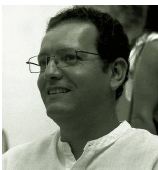 Zouhair LOUASSINI (RAI News) : “I realized that documentaries can really help you understand the Mediterranean. It’s fascinating to see not only the situation in countries such as Syria and Libya, where the news is aggressive and marked by war, but also issues such as the environment, with the situation in the Mediterranean extremely serious.”
Zouhair LOUASSINI (RAI News) : “I realized that documentaries can really help you understand the Mediterranean. It’s fascinating to see not only the situation in countries such as Syria and Libya, where the news is aggressive and marked by war, but also issues such as the environment, with the situation in the Mediterranean extremely serious.”
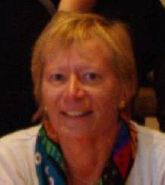 Mireille MAURICE (INA) : “A capital year for PriMed at the very centre of a week of Mediterranean broadcasting! A week of rich and rigorous pre-selection to offer the jury and public films of very high quality for a special Marseille Provence PriMed in 2013, where questions of memory, so dear to INA, are more current than ever… A big thank you to the CMCA and to RAI for these moments of shared visual pleasures…”
Mireille MAURICE (INA) : “A capital year for PriMed at the very centre of a week of Mediterranean broadcasting! A week of rich and rigorous pre-selection to offer the jury and public films of very high quality for a special Marseille Provence PriMed in 2013, where questions of memory, so dear to INA, are more current than ever… A big thank you to the CMCA and to RAI for these moments of shared visual pleasures…”
—
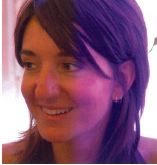 Vanessa TONNINI (Festival Rendez-vous / MedFilm Festival) : “I am thrilled to have been part of the pre-selection jury for the 17th PriMed. And I would like to warmly thank the CMCA: it has been a journey across the Mediterranean in all its aspects, one which involved a large selection of titles reflecting the wealth of documentary cinema in Mare Nostrum. The films chosen by the CMCA show us the complexity and contradictions of this magic space that is the Mediterranean, “the liquid continent, with solid borders and a mobile population”, as Bruno Etienne wrote.”
Vanessa TONNINI (Festival Rendez-vous / MedFilm Festival) : “I am thrilled to have been part of the pre-selection jury for the 17th PriMed. And I would like to warmly thank the CMCA: it has been a journey across the Mediterranean in all its aspects, one which involved a large selection of titles reflecting the wealth of documentary cinema in Mare Nostrum. The films chosen by the CMCA show us the complexity and contradictions of this magic space that is the Mediterranean, “the liquid continent, with solid borders and a mobile population”, as Bruno Etienne wrote.”
—
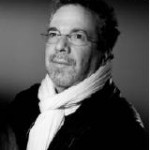 Sami SADAK (Babel Med Music) : “The Mediterranean, which inspires a whole lifestyle, is also a complex entity where contradictions and tensions prevail, but where, despite that, there is a sense of belonging that gives life to the beings of the Mediterranean world. Being on the PriMed jury was, as always, a wonderful moment of discovery or rediscovery of this complexity, through films which achieve an unrivalled degree of richness and eclecticism. For me these day-long screenings have become such an intense time, immersing myself in Mediterranean reality that I cannot do without it anymore.”
Sami SADAK (Babel Med Music) : “The Mediterranean, which inspires a whole lifestyle, is also a complex entity where contradictions and tensions prevail, but where, despite that, there is a sense of belonging that gives life to the beings of the Mediterranean world. Being on the PriMed jury was, as always, a wonderful moment of discovery or rediscovery of this complexity, through films which achieve an unrivalled degree of richness and eclecticism. For me these day-long screenings have become such an intense time, immersing myself in Mediterranean reality that I cannot do without it anymore.”
____
50 years after the Evian Accords and Algeria’s independence, the time seems ripe to tell the Algerian War as it really was, without taboos or silences. Using archival images, mostly never seen before and from a variety of sources (the French army, French television but also from British, Algerian and Eastern European television as well as some amateur footage), “Guerre en Algérie, la déchirure” attempts to show the conflict from every side, taking the diversity of viewpoints into account to try to understand what really happened.
Gabriel LE BOMIN is an author and film-director. He has several films to his credit, the most recent documentaries being: “Les Francs-Maçons et le pouvoir (2009, 52 minutes), “Histoire de l’Armée française” (2006, 2 x 52 minutes), “La Ligne Maginot” (2001, 3 x 15 minutes), “La 2ème Guerre Mondiale et la France Libre” (2000), “Le Colosse d’Alexandrie” (1999, 13 minutes) and “Rwanda, l’humanité nous appelle” (1995, 26 minutes).